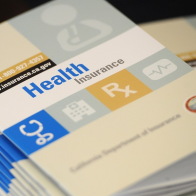 Have you ever had to tell a partner that you have a sexually transmitted disease? Have you looked into their eyes, seen the disgust, felt the fear, and noticed the depletion of attraction? Have you sensed the disappointment? Or felt a deep sense of shame as they passed judgment on your health status? Or maybe you decided that this emotional rollercoaster was not worth the conversation. And thus, we, as humans, avoid the vulnerability of admitting that yes our bodies are susceptible to contracting viruses and diseases when we kiss and stroke each other. We hide behind our condoms during intercourse in hopes that everything stays safe and covered; instead of simply admitting that with sex, oral and intercourse, comes risk. It is great to take precaution and practice safe sex, but it is also very possible that you could contract something if you are sexually active, protection or not. That doesn’t make you a “bad” or “irresponsible” person. It just makes you human. And perhaps, it is about time that we open up this conversation.
Have you ever had to tell a partner that you have a sexually transmitted disease? Have you looked into their eyes, seen the disgust, felt the fear, and noticed the depletion of attraction? Have you sensed the disappointment? Or felt a deep sense of shame as they passed judgment on your health status? Or maybe you decided that this emotional rollercoaster was not worth the conversation. And thus, we, as humans, avoid the vulnerability of admitting that yes our bodies are susceptible to contracting viruses and diseases when we kiss and stroke each other. We hide behind our condoms during intercourse in hopes that everything stays safe and covered; instead of simply admitting that with sex, oral and intercourse, comes risk. It is great to take precaution and practice safe sex, but it is also very possible that you could contract something if you are sexually active, protection or not. That doesn’t make you a “bad” or “irresponsible” person. It just makes you human. And perhaps, it is about time that we open up this conversation.
I’ll start. I’ve been fortunate to only experience minimal health problems as a result of sex. I’ve gotten a few yeast and urinary tract infections, along with a year and a half long experience with low-risk HPV. Thankfully, antibiotics helped clear up my various experiences with yeast and urinary tract infections within days. And my immune system cleared up the HPV on its own. I am healthy, and according to my most recent tests, STD-free. But regardless of my current health status, I’m also aware of the following things due to those experiences. One, I am human. Two, I am not invincible. Three, any type of sex is a health risk. Four, the more I talk about my experiences, the less shame people feel to talk about theirs.
 Unlike other body illnesses, STDs have this undying stigma of sexual irresponsibility and reckless behavior. But the truth is, very few people practice completely responsible sex, as “irresponsible” and “unprotected” have become synonymous outside the confines of marriage and long-term monogamous relationships. Let’s be truthful for one minute. By this definition, how many people have practiced unprotected oral sex or sexual intercourse without knowing their partner’s STD status at least once in their lifetime? Or even within marriage and long-term relationships, how many people know deep down that their partner isn’t being truthful about their sexual activities outside of the relationship, but still choose to practice unprotected sex, oral and intercourse, anyway? There are so many different situations in which people contract STDs, regardless of their relationship status, sexual orientation, or number of sexual partners. And honestly, there are so many people that have experienced a STD in some shape or form at least once in their life that we should be able to drop the stigma and discuss it like any other health issue.
Unlike other body illnesses, STDs have this undying stigma of sexual irresponsibility and reckless behavior. But the truth is, very few people practice completely responsible sex, as “irresponsible” and “unprotected” have become synonymous outside the confines of marriage and long-term monogamous relationships. Let’s be truthful for one minute. By this definition, how many people have practiced unprotected oral sex or sexual intercourse without knowing their partner’s STD status at least once in their lifetime? Or even within marriage and long-term relationships, how many people know deep down that their partner isn’t being truthful about their sexual activities outside of the relationship, but still choose to practice unprotected sex, oral and intercourse, anyway? There are so many different situations in which people contract STDs, regardless of their relationship status, sexual orientation, or number of sexual partners. And honestly, there are so many people that have experienced a STD in some shape or form at least once in their life that we should be able to drop the stigma and discuss it like any other health issue.
If you’ve already made the decision to be a sexually active human being, then you’ve made the choice to take a risk in contracting a STD. With millions of people contracting STDs every day, it shouldn’t surprise you to come into contact with someone that could currently have something or had something in the past. While your health certainly should be your main priority, it’s unnecessary to look down upon anyone that’s having or had a health problem as a result of sexual activity. Decide who to sleep with and how you want to sleep with them. But also recognize that one day the person that you’re pointing your finger at could be you. It’s important to treat that person’s emotions and honesty with care, in addition to creating a safe space between you and your partner for transparency.

Some may argue that stigma is a tool for STD prevention, but the flipside is that it doesn’t make honesty the easiest policy for those that have already experienced a STD. I encourage people to simply focus on reducing transmission, as it’s better to have a partner feel comfortable in confessing a sexual health issue than feel the need to hide it.
As prevention has two sides, not just one, do you agree it’s time to implement conversation strategies that accommodate truth instead of shame? Have you ever had to tell a partner that you had a STD? Or been on the other side and had your partner tell you?
Speak on it.







I think open dialogues about anything sexual makes everything better. There has to be a space where you two can talk comfortably. If not, I’m not sure why we are engaged in sex anyway. In a relationship there should be comfort. Now what I do see people having a hard time with is speaking to these issues you mentioned with casual sex partners or dates. The dialogue still must be there where the person can be comfortable.
Love this post! Probably will share more with you on Skype, not here! Keep it up.
Personally, I don’t think it’s necessary to share this info, unless you’re currently seeking treatment or it’s something incurable (like herpes or HIV). If the infection is a thing of the past and you’re cured and all is well, it’s a secret to take to the grave lol.
Fear, denial and stigma keep people from getting tested. These same folk continue to have sex with others and spread disease unknowingly. On the flip side, for fear of being judged, some decide not to share their sexual health status at all. Listen, I’ve had my share of urinary tract infections too and a case of low-risk HPV (my immune system booted it out) in the past, but the times when I am sexually active, I am VERY clear about being as safe as possible. That means, yes, I need to know your test results. I’m not saying folks need to walk around carrying papers, but I believe it’s a conversation that needs to be had – up front. Period. I have one little body, and it is too small to be infected with some stuff that I can’t get rid of. *steps off the soap box*
Even if you have an STD it’s still a level playing field. Having an STD doesnt confirm automatic immunity from getting another one, from someone who is possibly going through all the issues you are, including denial and self concealment.